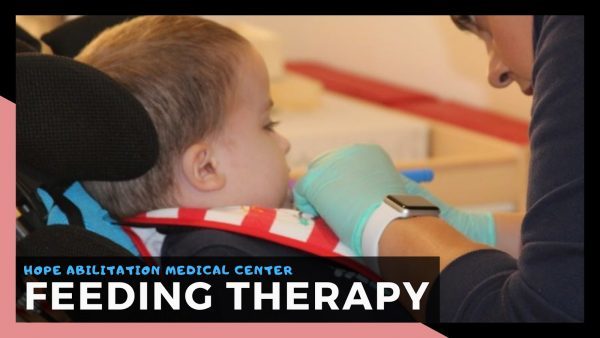How Does Feeding Therapy Work?
Do you frequently encounter problems with feeding your child? Have you noticed atypical eating and drinking behavior within your child? Do meal times become stressful at your household? For any of those question if your answer is yes, then you definitely can get benefit from feeding therapy. While there might be many reasons for having feeding difficulties that include sensory processing deficits associated with problems like Sensory Processing Disorder and Autism Spectrum Disorder, or Motor deficits associated with a neurological diagnosis like Cerebral Palsy, a feeding therapist can help ease stressful feeding behaviors to a great extent. Continue reading to know more!
Feeding Therapy – What It Is and How Can It Help?
Feeding therapy, in its simplest form, is a process where a professional therapist teaches a child ‘how to eat’ or ‘eat better’. It is a Neurorehabilitation process that helps resolve the difficulties faced by a child with eating or drinking. Depending on the child’s underlying challenges, they are encouraged to participate in a varying number of sensory integration activities and exercises that helps strengthen the muscles they require for eating.
Feeding therapy is conducted on a weekly basis for about 30-60 minutes long. During the session of feeding therapy, a child is taught how to eat new foods (if they have a very limited diet) or how to eat (if they don’t know how to chew or manage food in their mouth).
The main goal of feeding therapy is to help patients develop normal, effective feeding patterns and behaviors. It is much more than just ‘teaching a child to eat’. Therapists and parents work closely with the child to determine the source of the child’s difficulties and develop very specific therapies to make the entire process of eating simpler and more enjoyable. A therapist will devise a plan for working on addressing the underlying barriers to your child’s ability to eat an age-appropriate meal.
How Feeding Therapy Works?
If you struggle frequently while feeding your child and you believe your child needs feeding therapy, it is best to start by consulting with the feeding therapists at Hope Abilitation Medical Center. Wondering how the feeding therapy process works?
Assessment
Feeding is a developmental process where a child progress through different stages of oral motor skills to learn to chew, swallow and enjoy a wide variety of foods. Whenever a child stalls in that progression process for more than 6 weeks or when it is impacting the child’s nutritional status and/or growth, a feeding assessment is suggested.
The feeding assessment of a child will comprise of a review of the child’s complete feeding history, parental report on eating experience, and an observation of the child’s eating behavior, and occasionally an eating journal detailing the last three days of meals of your child. Using this information, a professional therapist will use their clinical judgment to determine the cause of the feeding problems that might include sensory issues like hypersensitivity to texture or rigidity with food preferences, or motor problems that impact the ability to chew or swallow.
Treatment
Based on the assessment of your child’s feeding problems, the feeding therapy treatment takes place. Usually, the therapy takes place in a neurorehabilitation center. The approach to feeding treatment might vary based on the person administering the treatment, and your child’s specific condition. The length and frequency of the therapy depend upon each child’s individual needs.
Usually, three major factors influence a child’s ability to enjoy food: first, physiology (includes sensory processing), second, gross and fine motor skill development, and third, the child’s behavior and family dynamics. It’s very rare for a child’s feeding problems to be strictly ‘behavioral’. Turning away from the spoon, spitting, throwing food or even increased anxiety in the presence of new foods are often an indication of poor physiology or difficulty processing sensory input and/or inadequate motor skills.
The feeding therapy treatment is to address the unique challenges faced by each individual child. There are many treatment approaches to feeding therapy but whichever technique chose, a child should never be forced food into their mouth.
At Hope AMC, we offer a relationship-based development feeding services to address feeding difficulties in your child. Our therapist takes a comprehensive approach targeting muscular coordination, sensory processes, and social experiences associated with eating.
So, now as you how feeding therapy works and how we can help your child have a better eating experience, consider seeking the help of this neurorehabilitation technique to improve your child’s mealtime behavior.






